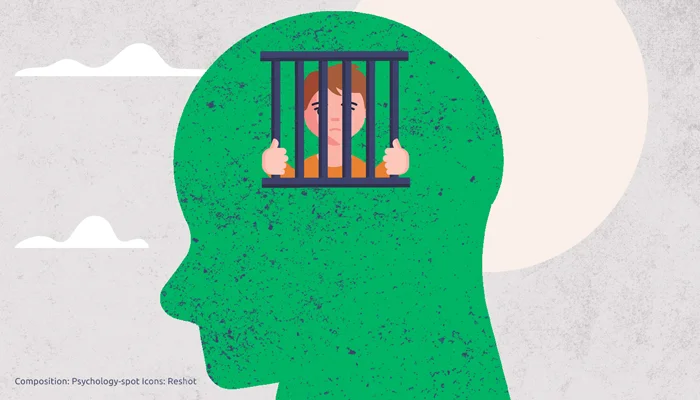
We all have the tendency to avoid emotions, thoughts or situations that usually cause us some trouble, this is what in psychology is called “Experiential Avoidance”. This way, we think that it is a positive attitude or even a kind of defense mechanism that protects us from feeling bad, like a inner guardian to ensures that nothing bad happens to us.
However, reality is different. Experiential avoidance also has a dark side in which we do not usually repair and that turns us into “slaves” of these emotions, situations or thoughts we want to avoid.
Obviously, if we only apply experiential avoidance from time to time to avoid unnecessary suffering, we can reap the benefits of this technique. However, if becomes a habit it can suppose a great danger.
It is important to consider it, especially in these times, when thanks to the spreading of positive psychology there are many false coach and self-help gurus who promulgate the idea that the secret to live well and be happy lies in experiencing the maximum amount of positive emotions and avoid negative emotions.
In fact, at first glance it seems a very good recommendation. And it is. But over time, this type of attitude leads us to avoid at all costs the situations we do not like, and these become a demon to exorcise, rather than something we have to face and solve. Thus, we end up avoiding the problems, but that doesn’t mean they will disappear.
Moreover, we must not forget the “Rebound Effect”. That is, the more we propose not to think about something and the more that idea becomes obsessive. This is because in our mind is activated a hyper vigilance mechanism to divert the idea as it arises, but this mechanism obtains only to keep that idea active in our mind. So, instead of feeling good we end up in a endless loop of negativity.
Positive distraction as a process of interior avoidance
When experiential avoidance becomes a habit, the “positive distraction” is no longer something productive, necessary and enjoyable and becomes a mechanism that allows us escape from ourselves and from the problems.
In fact, in recent times, due to a growing inability to live the inner states and an increased tendency to project to the outside world, many people have become “professional dissociationists”. What does it mean? We have learned to “seclude” or “hide” these issues which result more difficult to us and end up thinking only to what we find pleasant and easy.
If we imagine that our mind is a physical space, like a warehouse, we can understand that secluding or hiding certain content doesn’t make it disappear, but only that will occupy valuable space.
Obviously, this is only a metaphor, but we must bear in mind that to maintain that “dissociative state” we must burn energy, an amount of energy that we could use to solve problems and grow with them.
This phenomenon is particularly evident when a trauma with a capital “T” occurs. In such cases our mind needs to “hide” it because we do not have the psychological resources needed to process it and could cause us great harm. Only later, we can recover those memories and process them. However, if we hide it permanently, the trauma will negatively determine our life from somewhere in our subconscious, causing fear, distress and anxiety.
Unfortunately, today we have exaggerated and tend to live all negative emotions as “pseudo traumas”. We are afraid to experience certain emotions because the society catalogues them as negative. And this fear leads us to experiential avoidance.
Embracing the negative experiences as part of life
It doesn’t mean we have to adopt a masochistic attitude. It is obvious that we shouldn’t live looking for suffering. However, neither we should live avoiding it like a plague. We must learn to give a “space” to these mental contents or experiences we don’t like, because are an opportunity to learn something from us. Questions like: Why this is harassing me? Why would I want to avoid it? What says of me that emotion? Can help us to better know ourselves.
Moreover, instead of spending so much energy to keep these content hidden, we may use it for trying to solve the problem or channel the assertively emotions we are experiencing. That way we can grow as person. However, if we simply avoid those experiences that we don’t like, our “ego” will be reduced more and more every day.



